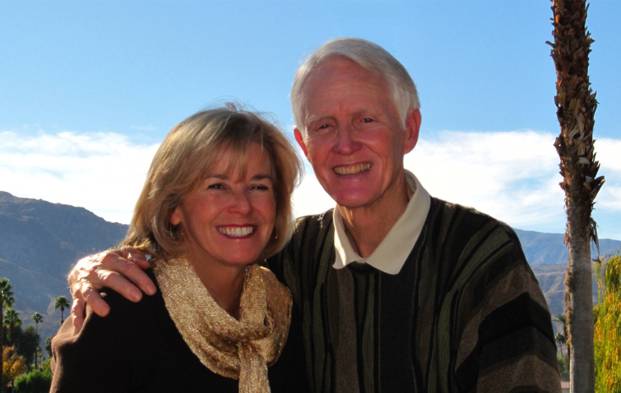
Independent Intimacy Versus Dominance and Dependence Tips
Conclusions supported by research from SRQ and SHAQ
Tom G. Stevens PhDPsychologist/Professor Emeritus, California State University, Long Beach
Send Feedback/Questions to: Tom.Stevens@csulb.edu
You Can Choose To Be Happy:
Site dedicated to enhancing human happiness, self-development, and success
Go to: Choose To Be Happy Checklist
SITE MAP: All free Self-help resources includes online book, You Can Choose To Be Happy, and SHAQ

|
|||
| search engine by freefind |
=> These are tips from paper presented to
Western Psychological Association based upon research from Stevens Relationship
Questionnaire (SRQ).
Go to: SRQ Research
for more information.
=> For additional, more recent research
results from Success and Happiness Attributes SRQ scales,
Go to:
www.csulb.edu/~tstevens/HQandSHAQresearch.htm
=> To take the SRQ (now part of SHAQ), go to: www.csulb.edu/~tstevens/success.htm
Dominance vs. Independent Intimacy
Sherry Bene' Stevens MFCC and Tom G. Stevens PhD
�Dependence & deficit thinking:
�Expect partner to make me happy
�Feel deprived--partner never meets my expectations. I give more than I get
�Give out of obligation and guilt (resent giving).
�Feel guilt or resentment depending on my perception of who is giving the most.
�Perception by others: Person is "needy," "demanding,""unhappy," and "low self-esteem."
�Both partners feel trapped and unhappy.
INDEPENDENT-INTIMACY RELATIONSHIPS
�Independence & abundance thinking:
�Expect to make self happy
�If make self happy, anything I get from partner is a "bonus" for which I am grateful
�Give out of empathy and caring (enjoy giving)
�Feel free and happy--don't need to measure who gives what because giving is a "win-win" proposition (we only give what we get joy from).
�Perception by others: Person is "independent,""giving,""happy," and has "high self-esteem."
�Both partners feel free and happy.
Summary of Choose to be Happy in Relationships Principles:
Tom G. Stevens PhD and Sherry Bene' Stevens MFT
* I have already received more than I can ever give. The creative forces gave me life, persons who took care of my survival and most basic needs, and a world full of opportunities for me to meet my own needs and happiness.
* Love or friendship is a gift--for which I am grateful. No one owes me their love or liking--not even my parents or partner.
* Make yourself happy, before and during relationships. Depend on yourself to make you happy--not partner. Don't blame partner for your unhappiness. Don't expect partner to change to make you happy.
* Give (act) out of empathy and caring for partner--not out of obligation and rules. Causes resentment.
* Give to make your partner happy--what THEY want not what you THINK they should want. If in doubt, ASK.
* Give what you can afford to give, or you will resent the giving.
* Balance giving. Make partner responsible for own happiness, but be as giving as feel is healthy to keep both happy.
* Equality of control in decisions--overall 50-50. Seek "win-win" solutions.
* Good communication. Empathy, honesty, openness. No game playing. If problems, ASK partner how they want you to communicate.
* Give lots of LOVE MESSAGES-compliments, "I love yous "
* If you are upset about your partner:
>Examine your underlying expectations. Realistic? Zero baseline?
>Expect partner to make me happy instead of make self happy?
>Assume best intentions of partner.
>No zingers or attacking--no driving nails in coffin.
>First ask yourself what you can think or do to improve the situation.
>THEN discuss it with your partner--and ask what they want of you.
* When either partner upset, still tell them YOU CARE, and switch into EMPATHY MODE. Offer suggestions about what YOU can do to make things better not what your partner can do.
* Have fun (and some life) apart--especially for areas do not share common interests.
* Have fun and romance together. Plan interesting and fun activities together. Learn how to play and let your little boy and little girl play. Make time, energy, and money for fun and romance a high priority. Share many parts of yourself and your life together--be multidimensional.
Many external forces
try to influence our decisions--
including many people we love and respect.
Many internal forces try to influence our decisions--
including many lower and
higher desires.
If we are too influenced by external forces,
we risk lack
of inner satisfaction and depression.
If we are too influenced by our own self-directed
desires,
we risk social consequences and guilt.
Allowing the Higher Self to
balance empathetic listening
to both internal with external messages, and
to give primary responsibility for meeting desires
to each individual
can
resolve the internal--external control conflict.
We can attain internal
control and "win-win" solutions
with happiness for both partners.
(From the book, You Can Choose To Be Happy: "Rise Above" Anxiety, Anger, and Depression (with Research Results) by Dr. Tom Stevens)
Dr Tom G Stevens' BOOK: You Can Choose To Be Happy:
"Rise Above" Anxiety, Anger, and Depression
(with Research Results)
Go to Free BOOK DOWNLOAD
pdf
Go to BOOK CONTENTS
Go to RESEARCH SUMMARY CHAPTER
SELF-HELP INFORMATION + SITE MAP:
FREE SELF-HELP MATERIALS on this web site (click here to see list)
Free SHAQ QUESTIONNAIRE: Go to:
Success and Happiness Attributes Questionnaire (SHAQ)
to assess yourself on many factors--including your
HQ-Happiness Quotient
ORDERING the BOOK:
How to ORDER You Can Choose To Be Happy
Web site created and maintained by: Tom G. Stevens PhD,
Psychologist/Professor Emeritus, California State University, Long
Beach Counseling and Psychological Services
URL of this web site:
http://home.csulb.edu/~tstevens/index.html
HOME PAGE: Return to Dr Tom Stevens' Home Page Copyright 2025; Tom G. Stevens PhD